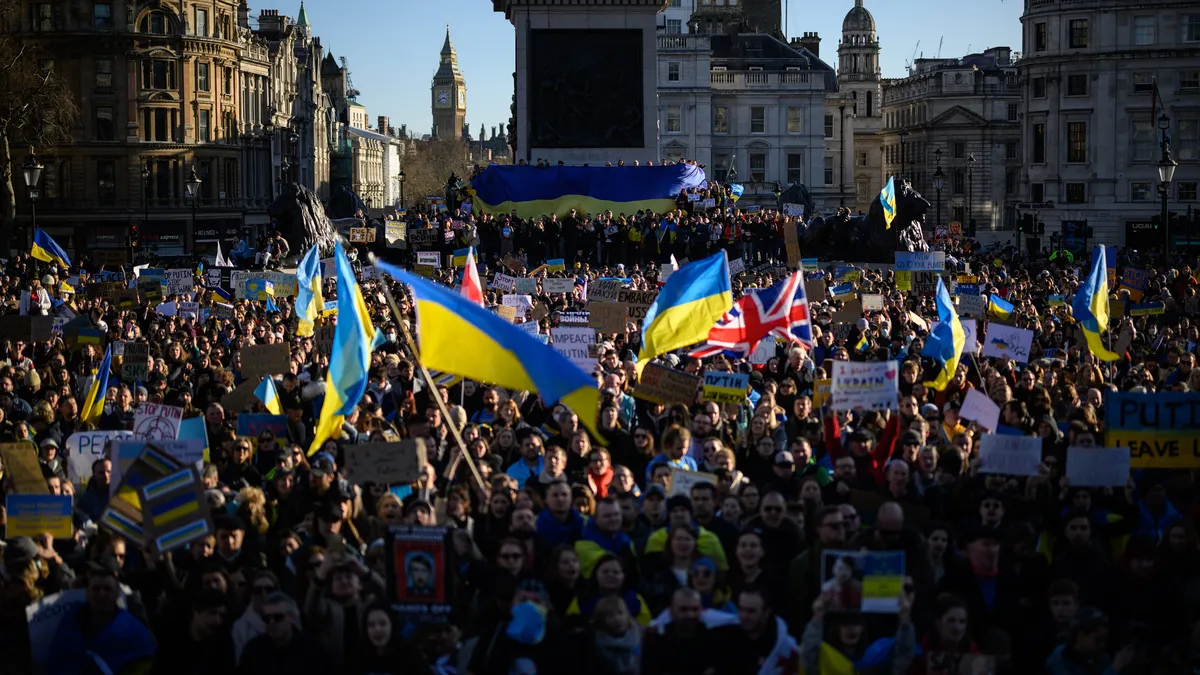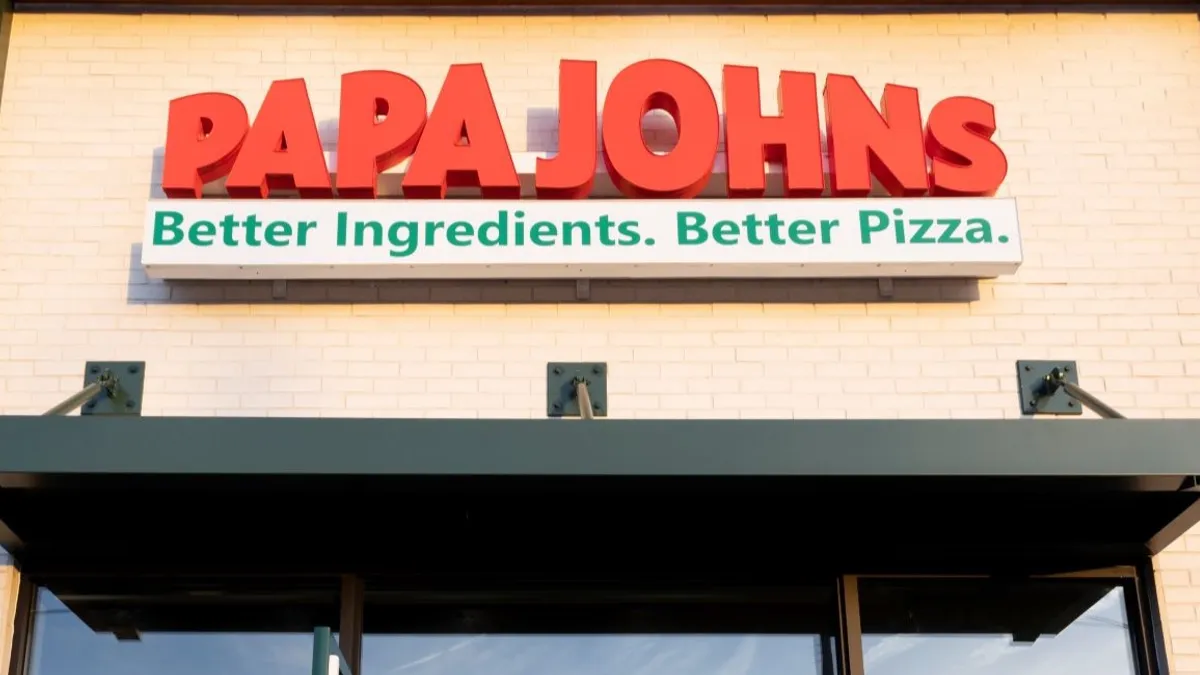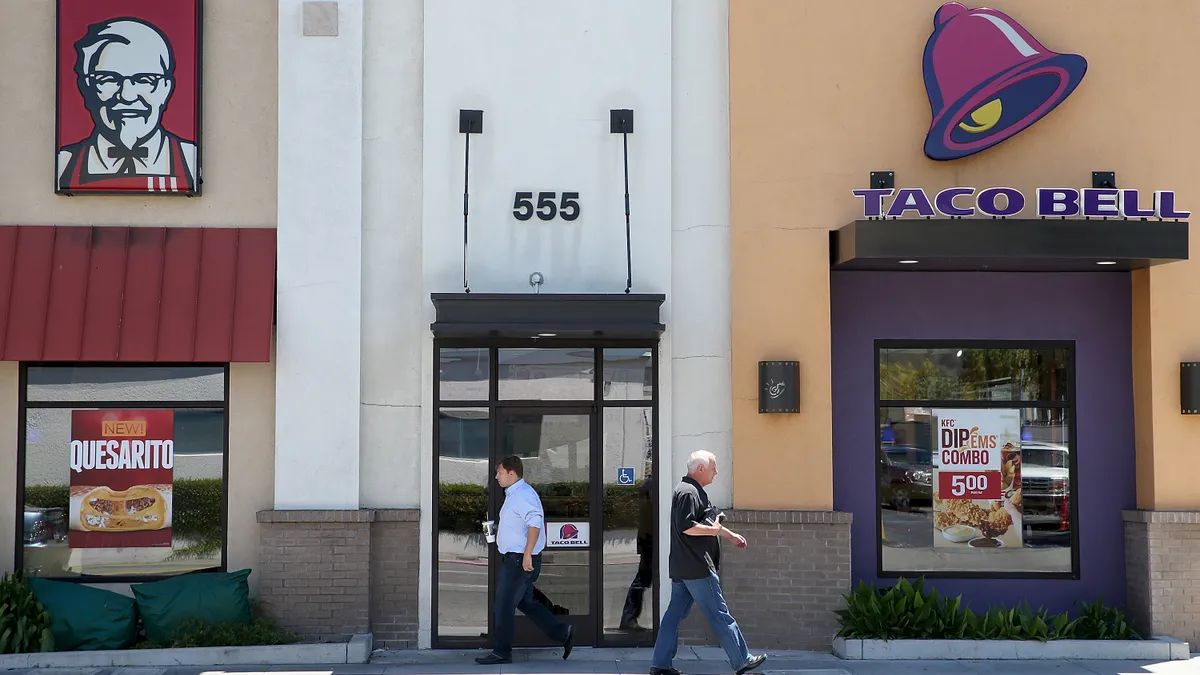Barely a month ago, marketers were priming consumers for a brighter future after two years trudging through the pandemic. Ads at the Super Bowl, a barometer of industry trends and tone, traded solemn pleas around public health initiatives in favor of light-hearted escapism and celebrity cameos. Now, the eager anticipation of catharsis — one previously delayed by multiple variants of COVID-19 — again seems like a distant horizon as war in Ukraine throws businesses into another round of global chaos.
U.S. consumers, by and large opposed to the war, can readily list actions they want to see brands take to sanction Russia. A recent Morning Consult survey found that three-quarters of adults supported stopping sales or pulling back products and services in the country. Procter & Gamble, Unilever, Coca-Cola, Pepsi, McDonald's and General Mills are among the dozens of companies that have started down this path. But as the pressure campaign mounts, CMOs and their peers in the C-suite need to closely consider what actions actually align with their purpose and which are simply informed by the demands of an emotionally-charged public. Going against the public risks short-term backlash, as evidenced by the recent emergence of social-media boycott campaigns, but may establish a stronger sense of trust and consistency as the conflict stretches on for an uncertain period.
"It's easy today to make quick and wrong decisions," said Niels Neudecker, head of brand performance and executive vice president at Kantar.
Beyond the significant humanitarian toll, the Ukraine crisis serves as another test of values following years marked by society-rattling disruption. Companies for the better part of the decade have made a big deal about causes they support beyond making money. The gravitation toward this positioning makes sense: Many consumers now believe business leaders are more capable of affecting change than the government. In the world of finances, environmental, social and governance (ESG) investing has seen its influence grow.
Lofty work around purpose-driven marketing, in turn, has drawn accolades, but the tactic has also come under closer scrutiny first with the pandemic, and not long after, mass protests for racial justice. A company could make bold statements in its advertising, but did its practices match the message when it counted? The more watchful eye on areas of business like employee treatment and investment was not much of a factor even 10 years ago but increasingly informs consumer perceptions in ways that could create a substantial impact as brands reassess their dealings in Russia.
"This may not really be 'another' inflection point for purpose, rather a new normal for brand purpose maintenance,'" said William Cimarosa, senior vice president of market research at Suzy, in an email response to questions about the Ukraine war. "If brands don't position themselves carefully, it's easy to lose control of narrative and quickly be seen as just another 'part of the problem.'"
Pressure cooker
Marketers that have ironed out a strong sense of purpose, whether through savvy strategy or in trying to account for past missteps, may feel equipped to tackle challenges around the Ukraine conflict. Employee welfare, for instance, is an issue that was pulled to the forefront at the onset of the pandemic. Companies that were seen as protecting their own workers or those on the front lines earned praise from consumers, while those that fell short were subject to media outcry. Similarly, companies that missed the mark on diversity, equity and inclusion figures were called out amid the reckoning with race in 2020.
The war in Ukraine carries similarities to past crises, but is riddled with its own complexities as well.
"It's one thing to say, I'm going to stand and support initiatives to combat racism and we're going to change our Twitter," said Sara Fagen, CEO of data-intelligence firm Tunnl. "It's really stark and hard to shut down your business … that's a different level of economic impact."
Marketers also have to contend with conflicting sentiments. Consumers have expressed a desire to see companies ensure the safety of personnel located in Russia, many of whom have protested the war. Some services providers, like the agency network Interpublic Group, have allocated capital to continue paying Russian employees even as they wind down their larger business in the territory. But swaths of consumers also want to see brands cut economic ties with the country, a move that could create misery for everyday people.
Neudecker highlighted that a multinational CPG may produce infant formula and have a purpose tied to keeping the world fed and healthy. Suspending operations would then not only raise broad ethical questions, but also those around a betrayal of purpose.
"It's a gray area where companies have products that are more essential for people," Neudecker said. "Where do you start to say: Yes, these are all these products we're pulling out and the other products we're leaving in? It's not that easy to answer."
Some marketers are trying to take a measured approach in retreating from Russia. Procter & Gamble recently froze marketing activity and capital investments in the region but will continue to provide some health, hygiene and personal care items. Other categories may find it harder to make an argument for continuing business as usual.
"How do you want to justify delivering luxury handbags to Russian people? What is the purpose there?" said Neudekcer.
Avoiding outrage
There are already case studies of what happens to brands that are perceived to take wrong steps regarding Russia. Those viewed as slow to pull out of the country have been castigated on platforms like Twitter. #BoycottMcDonalds and #BoycottCocaCola gained online traction before both brands suspended operations in the region.
"There's a lot of evidence around the public caring deeply about it," said Fagen of the Ukraine crisis. "The company that ignores this does it at their peril."
However, consumers have not always demonstrated an informed view of Russia, which makes meeting their needs a trickier proposition. A new Brand Keys study revealed 85% of surveyed respondents along bipartisan lines indicated they would boycott Russian brands to show solidarity with Ukraine. Only 8% could correctly identify Russian consumer brands without assistance.
Smirnoff, a product that heavily invokes Russian roots, has seen its bottles poured out as consumers express outrage over the Ukraine invasion. The spirit is currently produced in Illinois. Similarly, Stolichnaya, a product of Latvia, officially rebranded to its more common moniker of Stoli earlier in March, watering down potential associations with Russia.
"The survey results demonstrate the power of branding," wrote Robert Passikoff, founder and president of Brand Keys, in a note attached to the research. "But in this instance, it's both a blessing and a curse. What was once a sought out value is now a scourge."
Brands need to be prepared to wrestle with the fact that they may receive flak that's unwarranted or derived from misinformation. A report in The Wall Street Journal illustrated how the Ukraine war is the first of the TikTok age, where consumers — particularly younger cohorts with a lot of spending power — are turning to influencers and online activists for their news versus traditional outlets. That can create a breeding ground for falsehoods, along with accelerating the clip at which movements spread.
"The ability to be a publisher and a commentator with your smartphone, that is all trending in the direction where more people are going to be more concerned about issues like this," said Fagen. "Companies are going to have to be on the offense."
Purpose perseverance
That said, marketers that are able to thread the needle in addressing the Ukraine crisis may foster a stronger sense of loyalty with consumers. Communicating leadership at a moment of uncertainty might also provide a rebuke to the more vocal crowd of purpose skeptics. Earlier this year, Unliever received a flogging from an investor who believed the marketer of Hellmann's and Dove had lost sight of business fundamentals in the quest to imbue its brands with purpose. That view could be proven right or wrong as both areas intersect more closely around the Ukraine response.
"There are crises that are real and need to be addressed and there are crises that are not," said Fagen. "But most of these companies fly blind."
And even if investors have upped their skepticism of the purpose crusade, consumers still find it appealing, at least in theory. Kantar research showed 76% of consumers in the 18-to-34 age bracket rated brand purpose as very or somewhat important.
"The understanding of what a brand is today, it's not independent from society," said Kantar's Neudecker. "Every brand is in the center of our society and has to take responsibility."





















